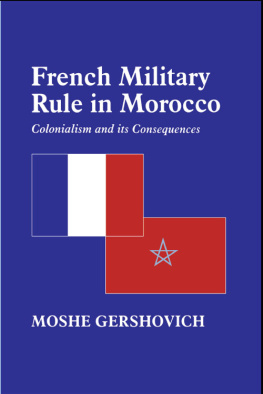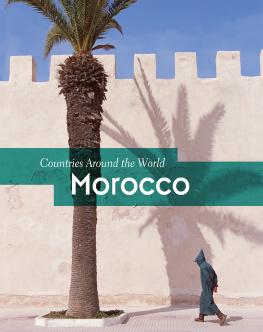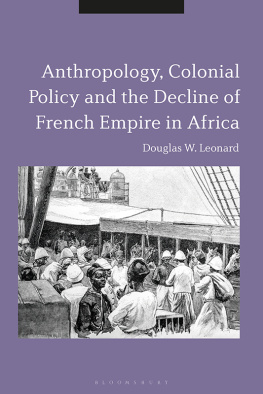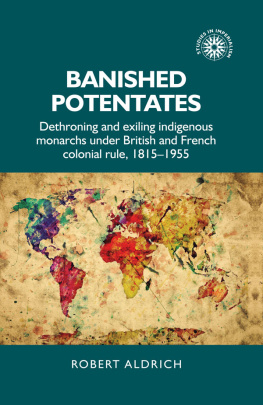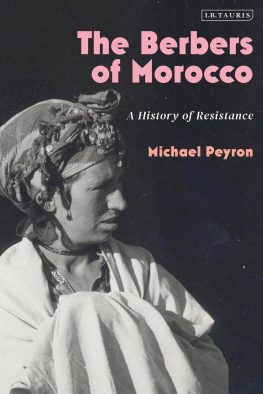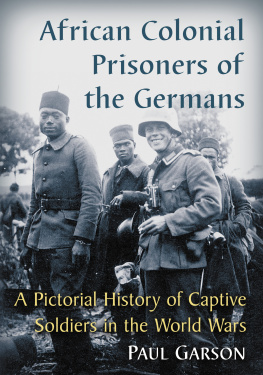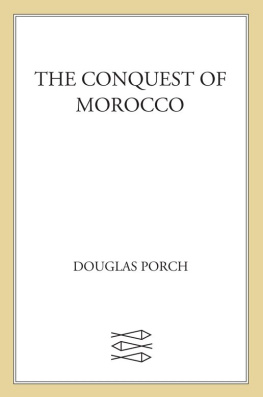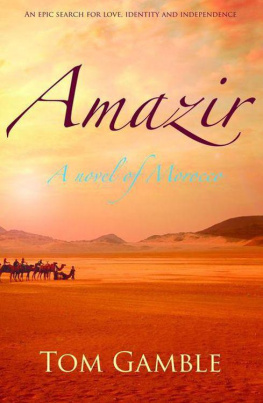FRENCH MILITARY RULE
IN MOROCCO
CASS SERIES: HISTORY AND SOCIETY IN THE ISLAMIC WORLD ISSN 1466-9390
Series Editors: Anoushiravan Ehteshami and George Joffe
Contemporary events in the Islamic world dominate the headlines and emphasise the crises of the Middle East and North Africa, yet the Islamic world is far larger and more varied than we realise. Current affairs there too mask the underlying trends and values that have, over time, created a fascinating and complex world. This new series is intended to reveal that other Islamic reality by looking at its history and society over the ages, as well as at the contemporary scene. It will also reach far further afield bringing in Central Asia and the Far East as part of a cultural space sharing common values and and beliefs but manifesting a vast diversity of experience and social order.
FRENCH MILITARY RULE
IN MOROCCO
Colonialism and its Consequences
Moshe Gershovich
FRANK CASS
LONDON PORTLAND, OR
First published in 2000 in Great Britain by
FRANK CASS PUBLISHERS
2 Park Square, Milton Park, Abingdon,
Oxon, OX14 4RN
and in the United States of America by
FRANK CASS PUBLISHERS
270 Madison Ave,
New York NY 10016
Transferred to Digital Printing 2005
Website: www.frankcass.com
Copyright 2000 Moshe Gershovich
British Library Cataloguing in Publication Data
Gershovich, Moshe
French military rule in Morocco: colonialism and its
consequences
1. Military government - Morocco 2. Morocco - Colonial
influence 3. Morocco - Politics and government - 20th
century 4. Morocco - History - 20th century 5. France
Colonies I.
Tide
964. 04
ISBN 0-7146-4949-X (cloth)
ISSN 1466-9390
Library of Congress Cataloging-in-Publication Data
Gershovich, Moshe, 1959-
French military rule in Morocco: colonialism and its
consequences
/ Moshe Gershovich.
p. cm.
Includes bibliographical references (p. ) and index.
ISBN 0-7146-4949-X.
1. Morocco-History, Military-20th century. 2. France-Military
relations-Morocco. 3. Morocco-Military relations-France.
I. Tide
DT316.G47 1999
All rights reserved. No part of this publication may be reproduced, stored in or introduced into a retrieval system or transmitted in any form or by any means, electronic, mechanical, photocopying, recording or otherwise, without the prior written permission of the publisher of this book.
Typeset by Vitaset, Paddock Wood, Kent
Contents
Tables and Maps
TABLES
Order of Battle of the French Occupation Corps in 80
Morocco 1911-34
MAPS
Foreword
The remains of Marchal Louis-Hubert Lyautey (1854-1934) lie only a few steps away from Napoleons at Les Invalides in Paris. Historians of French colonialism will not be surprised by this bit of necrology because they have long contributed to Lyauteys reputation as Frances most revered colonial soldier-administrator. But historians are hardly of one mind in their evaluation of Lyauteys governance of Morocco, where he certainly enhanced his reputation. In recent years, some have employed new metrics, the results of which suggest that Lyauteys policies enjoyed only modest success.
In his examination of Frances 44 years (1912-56) of direct rule over Morocco, Moshe Gershovich not only presents us with the most up- to-date assessment of Lyauteys tenure, but also fills in a major void in our knowledge of the contributions Moroccan soldiers made to the consolidation of France overseas and to the defense of France at home. In addition, he suggests interesting ways to treat the history of French military relations with Morocco both from the perspective of French history and from that of Moroccan history.
To accomplish his aims, Dr Gershovich has made extensive use of the archives of the French army in Vincennes and the Foreign Ministrys Diplomatic Archives of the Moroccan Protectorate in Nantes (where the sign indicating Lyautey Street offers an incorrect birth date for the Marchal of France!). He also consulted a number of contemporary French colonial and military periodicals in addition to the published memoirs and correspondence of participants in the events about which he writes.
French Military Rule in Morocco is the most comprehensive study of French military policy in Morocco to appear since Robin Bidwells 1973 book Morocco under Colonial Rule, and it is the only one to provide a systematic account of the unfolding of French military strategy in Morocco. Historians including Edmund Burke, III (Prelude to Protectorate in Morocco, 1976) and Douglas Porch (The Conquest of Morocco, 1982) have examined, in interesting ways, the conquest and pacification of Morocco that led to the establishment of the French Protectorate in 1912. Others, notably Alan Scham (Lyautey in Morocco, 1970), Daniel Rivet (Lyautey et Vinstitution du protectorat francais au Maroc 1912-1925, 1988) and William A. Hoisington, Jr (Lyautey and the French Conquest of Morocco, 1995), have analyzed Lyauteys novel policies during the Protectorate and the circumstances surrounding his departure from Morocco in 1925. French Military Rule in Morocco covers both periods and adds a fascinating account of the events which immediately followed Lyauteys exit.
Not far from Les Invalides is Frances Museum of the Legion of Honor, where there is a small portrait gallery illustrating how soldiers in the various French military formations overseas and at home typically dressed. Two Moroccan sharpshooters are sketched, one in a red fez and the other with a beige turban covering his fez. How Moroccans came to be in the service of France has been largely neglected until now. In French Military Rule in Morocco, we follow the recruitment of Moroccan soldiers - tirailleurs, spahis and goumiers - into the French military and learn about their actions in the pacification of their own country and in securing other parts of the French empire, including Syria and Lebanon. Military historians will be especially interested in the way Moroccan troops were incorporated into Frances strategic thinking and were involved in the defense of France during the Second World War.
Scattered across Morocco are the unpublished sources and aging soldiers that Dr Gershovich has begun to consult to round out and enrich his story of Frances military rule over Morocco. He concludes the book by discussing how we can begin to understand Frances legacy in Morocco. He suggests that, because it was seized in order to better secure Algeria, and not for its intrinsic value, France gave Morocco up without much fuss after the Second World War. This quiet withdrawal allowed France to maintain considerable influence in the newly independent kingdom. Frances professionalization of the Moroccan officers who served France during the Protectorate helped to ensure that they stayed out of politics during the first generation of Moroccan independence: in other countries once ruled by France this was hardly the case, to wit Syria. He suggests that Lyauteys famous governance formula, which was specifically designed to check the growth of a cohesive national entity in Morocco, inadvertently facilitated its advancement. By playing the less politically developed countryside, which was populated by Berber tribes, against the nationalist towns, the French unintentionally mobilized these remote regions and peoples. The consequences were a politicized countryside which ultimately failed to support the French bid to halt the expansion of the national independence movement, and a countryside ripe for incorporation in an inclusive Moroccan national identity under the monarchy.

